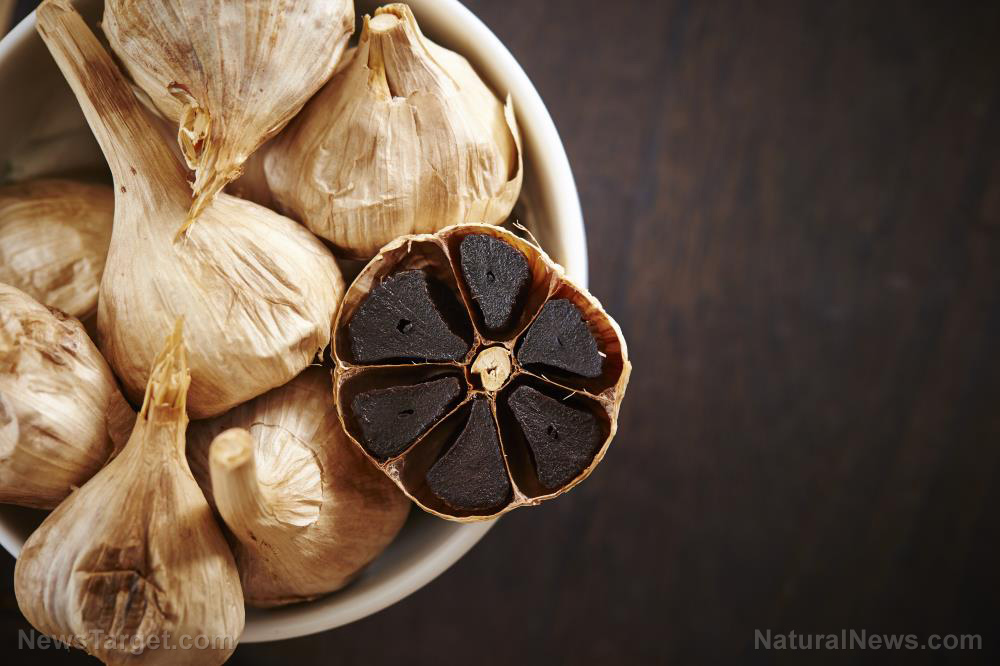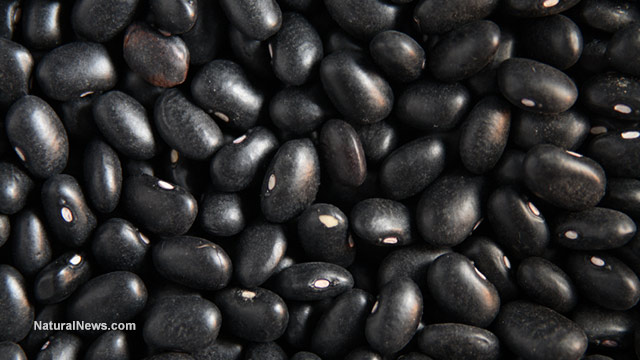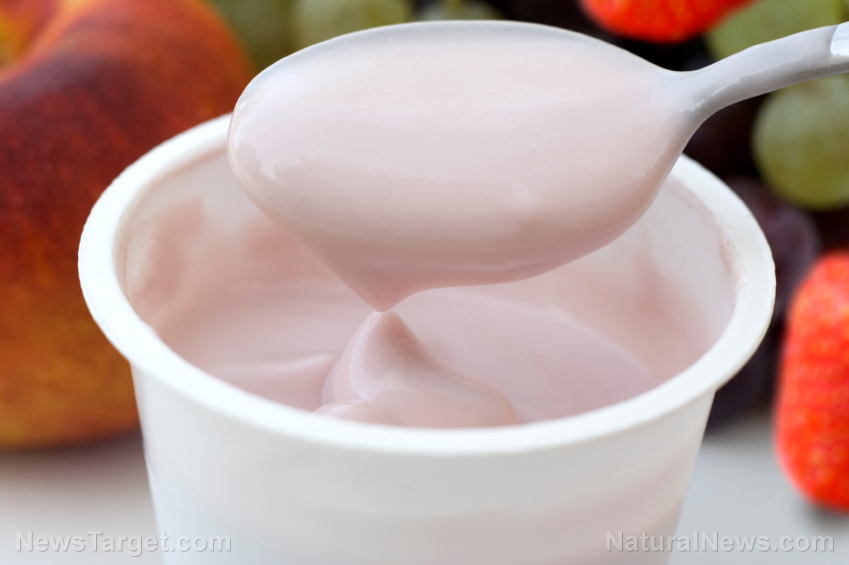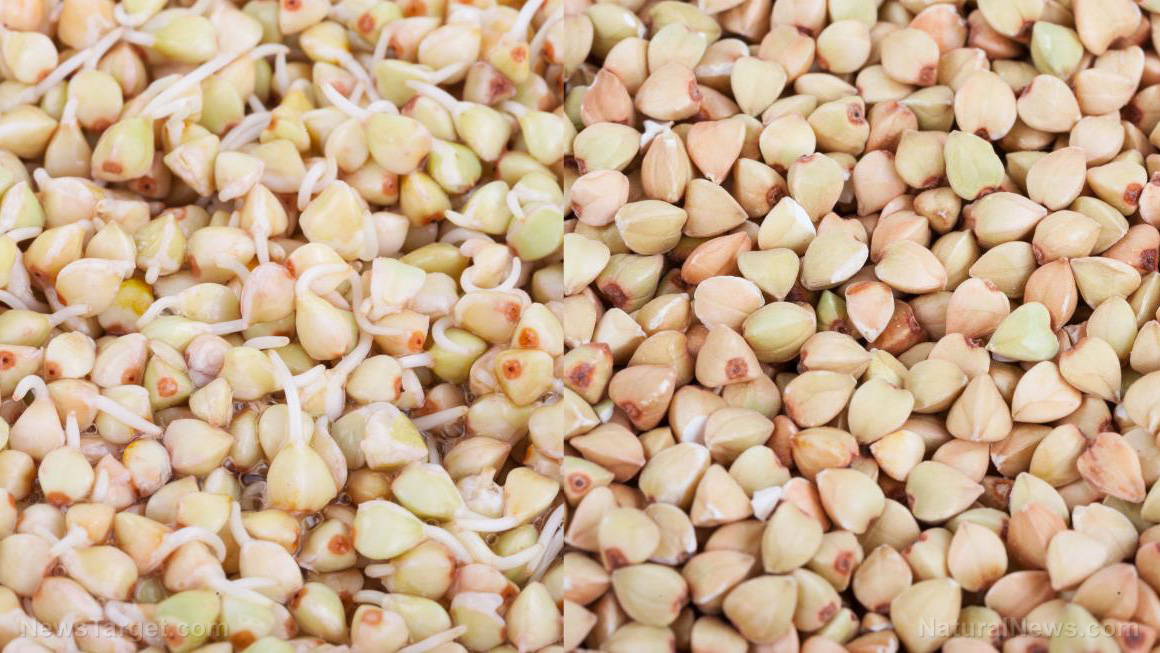Improve your heart health with aged garlic extract
10/31/2018 / By Michelle Simmons

Using aged garlic extract can keep cardiovascular diseases at bay, thanks to its ability to prevent platelet aggregation, suggests a study in the Journal of Natural Medicines. In the study, researchers from Japan looked at the effect of aged garlic extract on the functional property of platelet.
Platelet aggregation is the clumping together of platelets in the blood. It is part of the sequence of events that result in the formation of a clot. Aged garlic extract, which is a garlic preparation rich in water-soluble cysteinyl moieties, has been shown to possess multiple beneficial effects on cardiovascular diseases, such as prevention of platelet aggregation. However, its mode of action on platelets has not yet been fully understood.
For the study, the researchers treated mice with aged garlic extract to mice. They also examined the platelet aggregation in response to collagen in laboratory testing.
The results showed that the treatment of aged garlic extract greatly reduced the ability of platelet to clump together after two weeks of treatment. In addition, the aged garlic extract treatment produced platelets that responded to collagen. It also dose-dependently suppressed the phosphorylation of signaling proteins.
Based on the findings of the study, the researchers concluded that aged garlic extract can protect the heart from cardiovascular diseases by inhibiting platelet aggregation. It does this by changing the functional property of platelets in response to collagen.
The benefits of aged garlic extract
Aged garlic extract has caught the attention of researchers, mostly because of its potential in preventing cardiovascular diseases. Fresh garlic extracts are aged for long periods to produce aged garlic extracts. These extracts contain phytochemicals that can help fight oxidative damage caused by free radicals. A study published in the Journal of Nutrition reported that extracting garlic for up to 20 months produces an antioxidant effect by changing certain less stable compounds, such as allicin. It also suggested that aged garlic extract can help prevent several health problems, such as memory loss linked to aging, as well as lower the risk of stroke, cancer, and cardiovascular disease. Other health benefits of aged garlic extract include the following:
- Aged garlic extract can help prevent atherosclerosis: Aged garlic extract can help keep the heart healthy by preventing the buildup of plaque in arterial walls. In a study published in the journal Preventative Medicine, researchers found that aged garlic extract can potentially be used to prevent atherosclerosis or coronary calcification, especially for people who are at a greater risk for cardiovascular diseases. (Related: Prevent artery hardening and calcium buildup with aged garlic.)
- Aged garlic extract can help reduce blood pressure and cholesterol: Aged garlic extract can also help reduce blood pressure and lower cholesterol levels, according to a study published in the Journal of Nutrition. According to the researchers, this effect may be attributed to the ability of aged garlic extract to reduce blood platelet adhesion and aggregation. In the study, the researchers discovered that aged garlic extract, when taken in high doses, can prevent blood platelets from clumping together. This indicates that it can be helpful in the prevention of cardiovascular diseases, such as ischemic stroke and myocardial infarction.
- Aged garlic extract can boost the immune system: Another study has found that aged garlic can help boost immunity. Aged garlic extract has been reported to possess anti-allergenic, anti-tumor, and anti-psychological stress effects. In the study, researchers discovered that it can also interrupt the growth of chemically induced tumors in the bladder, colon, breast tissue, lungs, skin, esophagus, and stomachs of animals. In addition, it can help restore immune health by reducing stress.
Read more news stories and studies on ways to prevent cardiovascular diseases by going to Heart.news.
Sources include:
Tagged Under: aged garlic extract, alternative medicine, cardiovascular disease, cardiovascular health, garlic, Heart, heart disease, heart health, herbal medicine, Herbs, natural cures, natural healing, natural medicine, natural remedies, platelet aggregation



















